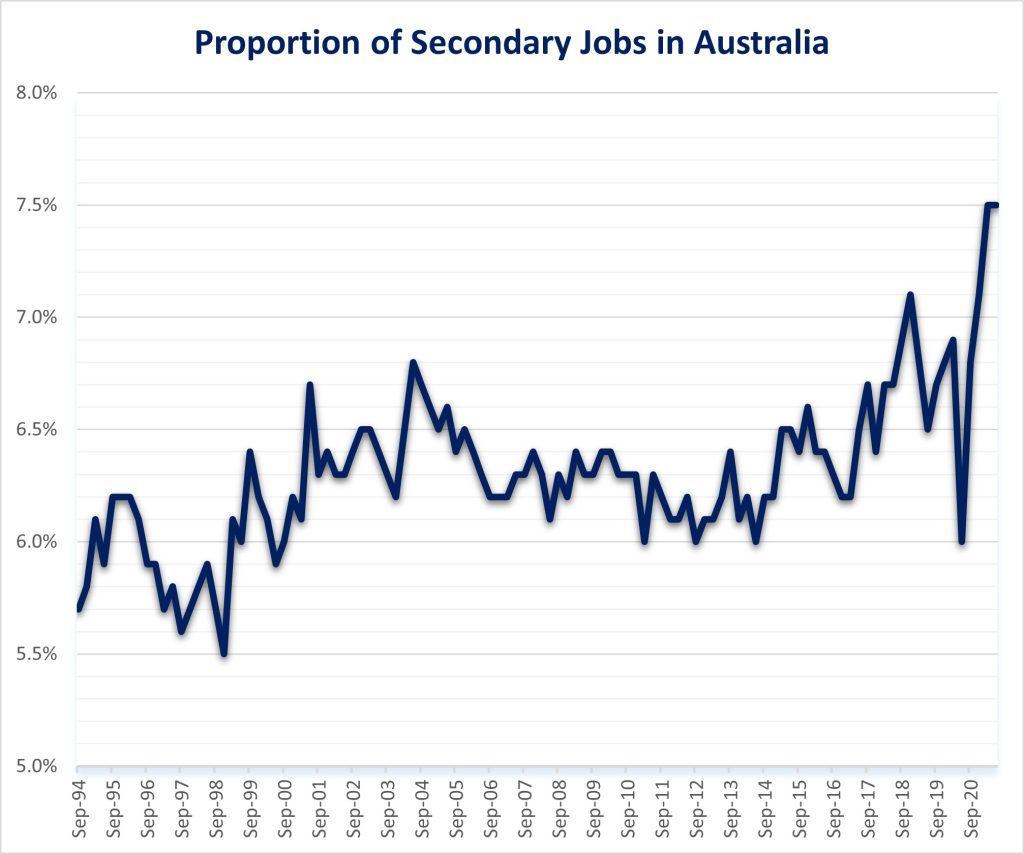
St Joseph the Worker Pastoral Message 2022
The positive economic reports that we hear don’t seem to reflect the experience of low-income families. Statistically, unemployment rates are low. Yet an increasing number of people who are looking for work can’t find enough secure employment and are not paid a fair wage for the work that they do. [Bishop Vincent addressing the camera in or outside a café or other workplace]
Anyone who works even one hour during the Australian Bureau of Statistics ‘reference week’ is counted as being employed. So, we need to look beyond unemployment figures to understand what is happening.
 Source: Australian Bureau of Statistics
Source: Australian Bureau of Statistics
One troubling trend is increasing numbers of people working more than one job. For some, a ‘portfolio’ approach can enhance their working life. But for others it is a matter of economic necessity. They are cobbling together multiple part time or casual jobs to try to make ends meet.
This work is usually poorly paid and insecure. There is little career progression. Casual and seasonal workers are not entitled to paid leave even when they are sick or must care for others. It is a stressful and uncertain way to live. Much of this work is undertaken by women. This type of work is hard on family life. It makes it difficult for young people to get a start in life.
Working more than one insecure job is common among cleaners, health and aged care workers, childcare workers, and social assistance workers. These and other workers in the care economy have been such heroes during this pandemic! Yet they are often underpaid or placed in intolerable working conditions. It is scandalous that people who do such essential work are left in situations of scarcity and insecurity. Surely the pandemic has taught us to value this work and those who do it more highly?
Whoever forms the next Federal Government, we hope to see greater policy focus on decent work – work that is safe, secure, and fairly paid. Stable, secure jobs are needed to power a recovery that actually works for working people and their families.
Bishop Vincent Long Van Nguyen OFM (Conv)
Chair, Bishops Commission for Social Justice, Mission and Service
Bishop of Parramatta
Click here to Read More…







